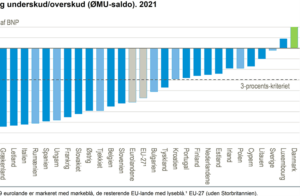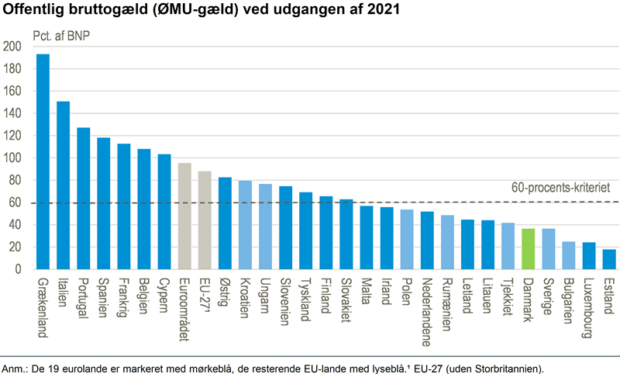News
Denmark saw highest public surplus in EU in 2021
This article is more than 3 years old.
Meanwhile gross public debt was among the lowest out of all 27 member states in the union

Leading the way (photo: Danmarks Statistik)
Following two tough years of COVID-19, you’d be forgiven for thinking that Denmark’s public finances would be in disarray.
But they’ve actually been performing quite admirably, according to new data from Danmarks Statistik.
The figures reveal that Denmark enjoyed a public sector surplus of 58.7 billion kroner in 2021 – about 2.3 percent of GDP.
That puts Denmark top of the EU list. In fact, only one other country, Luxembourg, had a public sector surplus last year.
On average, the 27 member states had a deficit of 4.7 percent of GDP.
READ ALSO: Government wants to increase work transport deduction
Tough times
Denmark’s gross public debt was 917.3 billion kroner at the end of 2021 – which is a debt of 36.7 percent of GDP.
That ranks Denmark among the five lowest in the EU and among 13 of 27 member states that lived up to the Economic and Monetary Union (EMU) debt criteria as stipulated by the Maastricht Treaty.
Under normal circumstances, gross public debt must make up a maximum of 60 percent of GDP.
But by the end of 2021, the 27 member states had an average gross public debt of 88.1 percent, with a quartet of southern European countries leading the way (see below).











































